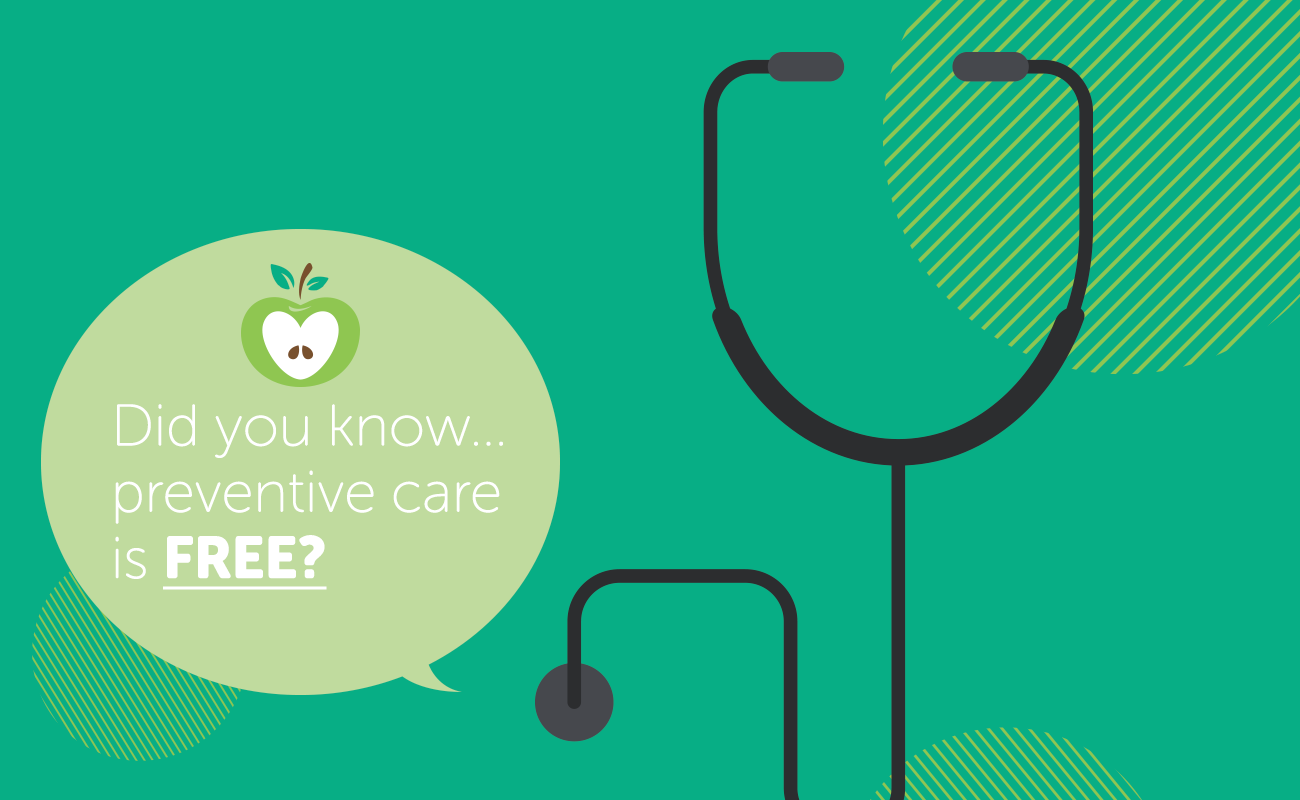An Apple a Day Really Does Keep the Doctor Away

They say an ounce of prevention is worth a pound of cure, but did you know that 40 percent of illness is completely preventable? That’s according to the U.S. Centers for Disease Control and Prevention (CDC), which says 900,000 Americans die each year from conditions that could be avoided through lifestyle changes and preventive care.
What is preventive care?
As its name suggests, preventive care consists of measures used to prevent the onset of disease. This includes things like immunizations, checkups, cancer screenings, and more depending on your age and gender. In addition to preventing disease before it starts, most of these services are completely free!
Preventive care is FREE!
A key provision of the Affordable Care Act (ACA) is a requirement that health plans cover in-network preventive care at no out-of-pocket cost to the consumer. That means, if you have health insurance, you will not pay a copay, coinsurance, or deductible when receiving these services from a doctor who participates with your plan.
As health care costs continue to rise, many young, healthy individuals might be wondering if it’s worth it to buy health insurance. After all, Congress recently unwound a provision of the ACA requiring Americans to have health insurance or pay a fine. If you’re new to the workforce and not making a ton of money, your monthly insurance premium can be a tough pill to swallow. But preventive care can literally save your life, and thousands of dollars down the road.
Preventive care can literally save your life
Just think, a simple glucose screening can detect pre-diabetes, a precursor to one of the most common and costly health conditions in America today. But found early, simple lifestyle changes – like eating well and exercise – can prevent the onset of type 2 diabetes.
Likewise, detecting breast, cervical, or colon cancer in its early stages increases survival rates by five times! And finding and removing pre-cancerous polyps can mean the difference between life and death.
Preventive care can save you cold, hard cash
The CDC says chronic conditions, such as heart disease, diabetes, and cancer account for 75 percent of the nation’s health care spending. In addition to the cost of treating these common conditions, they’re also a drain on the economy, as 69 million Americans report having missed work as a result of illness, reducing economic output by $260 billion a year.
There’s no denying that America needs to get its health care house in order. U.S. spending on health care is expected to rise another 5.3 percent this year, tipping the scales at a whopping $3.5 trillion. While we continue to argue over the causes of rising health care costs, the only antidote in sight might be our own free will.
 The Daily Dose
The Daily Dose
Comments are closed.